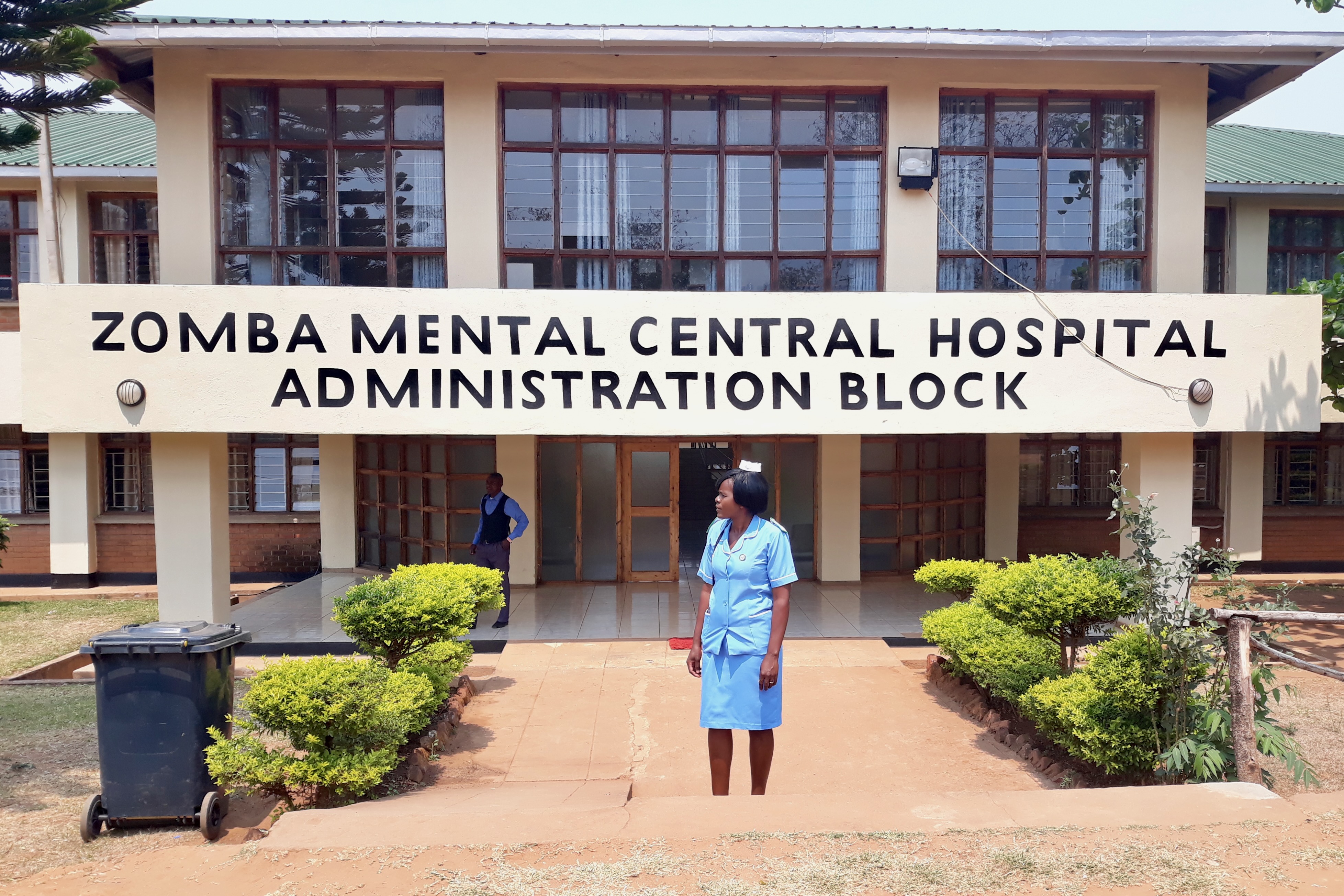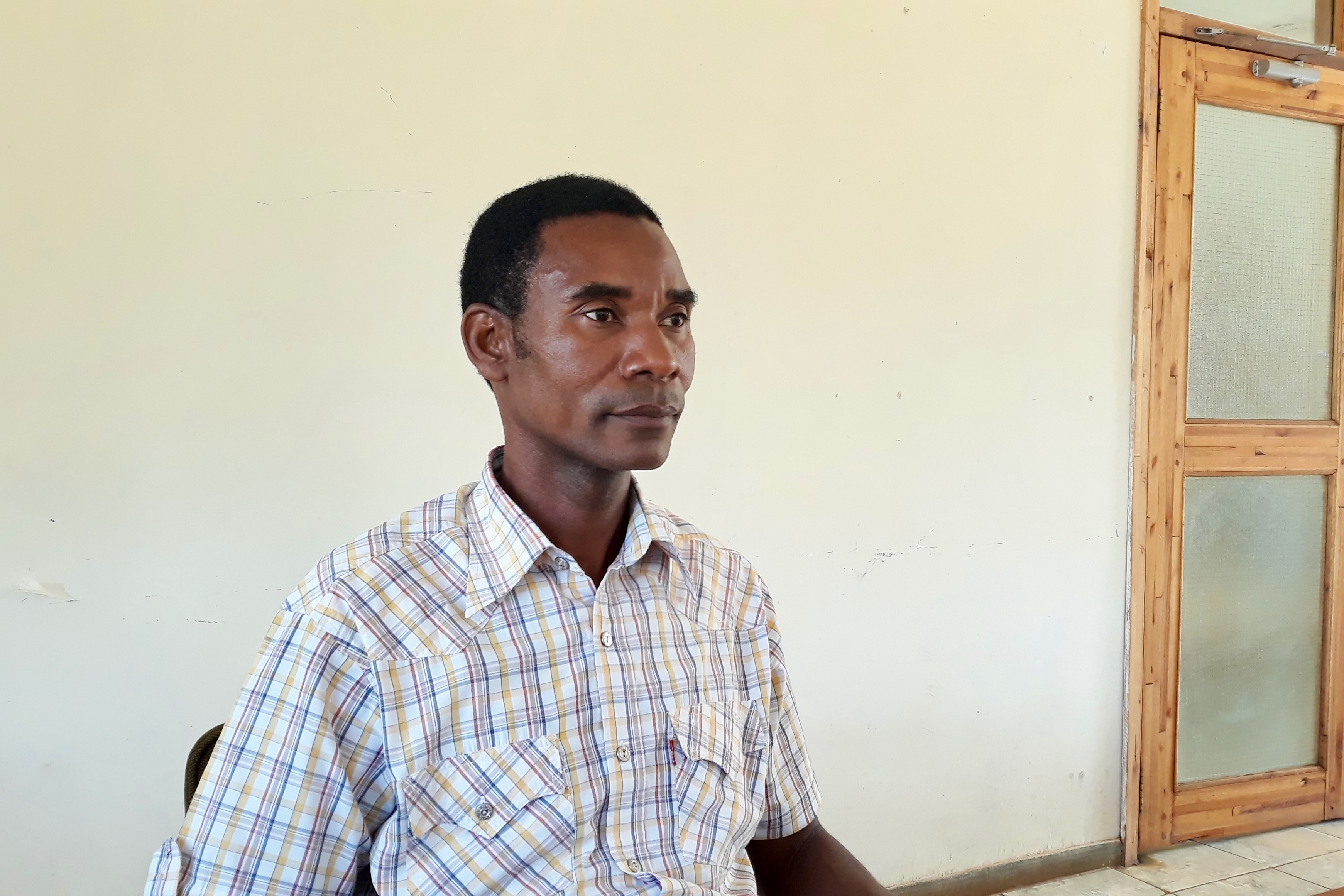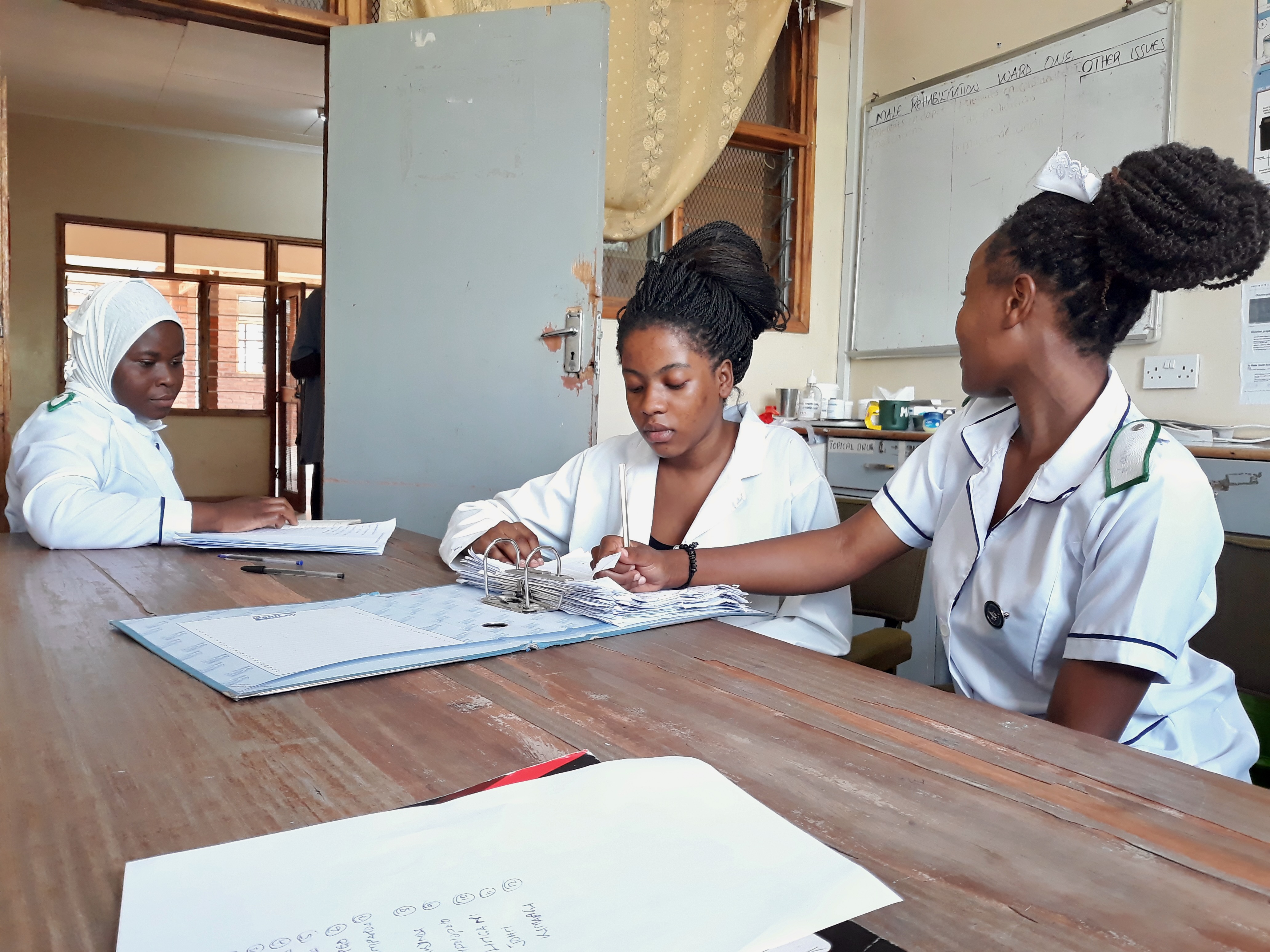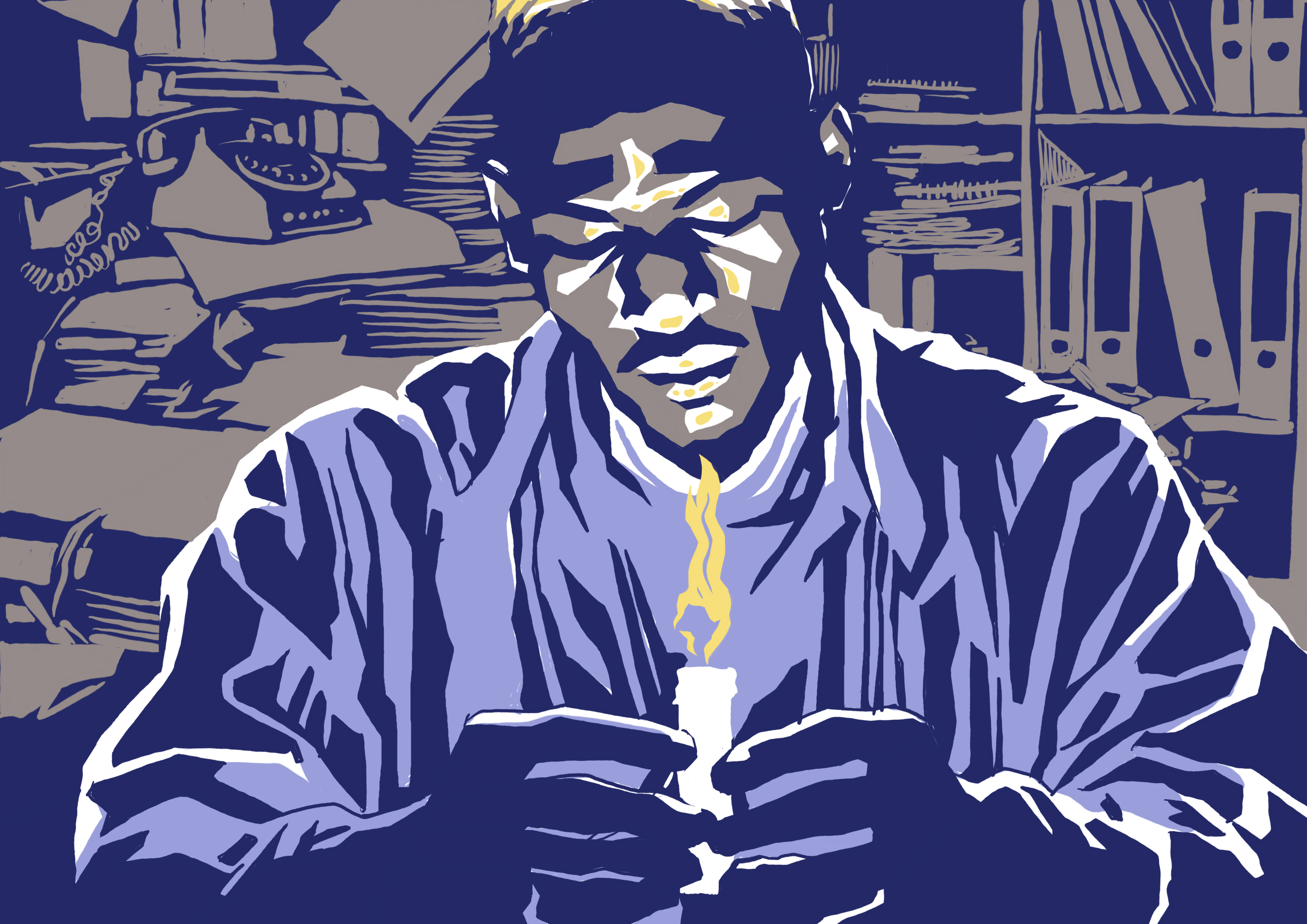Zomba Mental Hospital (ZMH), 70 kilometres north of Malawi’s business capital Blantyre, used to be a place where mental health patients were brought to die. While mental conditions led to suicide, violent actions, trauma from beatings, and infected wounds caused by having been tied up by desperate relatives, untreated HIV, malaria, diarrhoea, and TB also played their part. Up to 2006, out of a total average patient population of 400, the death toll averaged 60 per year.
In 2021, the death toll for the full year, over the same 400 beds, was eighteen.
Malawi’s only state mental healthcare facility has, in past decades, benefited from what might be called the advantage of disadvantage. The social stigma attached to mental health conditions meant that sites for such patients were shunned by many functionaries, careerists, and even charitable institutions. As a result, a minority of professionals managed to turn Zomba around from a close-to-medieval nightmare to a still poor, but functional place of treatment and care.
Iron lady
One leading individual, now retired, is fondly remembered as the “iron lady” who initiated the change: Dr Immaculate Chamangwana, psychiatric nurse and nursing director, with a PhD in healthcare leadership philosophy. It was Dr Chamangwana who, even before her appointment as ZMH acting director in 2006, started telling the political powers-that-be that the hospital and its patients needed more, and better. Frustrated after having nursed patients for years amid sewage leakages and congested wards in uninhabitable buildings, she remembers how she first got her chance to speak out at a high-level budget meeting at the Ministry of Health in Lilongwe, the political capital, in 2002. The proposed budget for ZMH on the table in that meeting, for the whole year, amounted to 11 million Kwacha: US$ 6,500.
“This was the most painful moment,” Chamangwana recalls in an interview. She had brought her own proposed budget, but it had been rejected for the fourth time in four years. She had previously kept quiet, since such meetings, attended by high-ranking dignitaries, provided little or no room for negotiations. This time, she spoke up: “Conditions at ZMH are very bad. This is a hospital; nobody chooses to be there. You will only get to understand the state it is in, and why we have presented this budget that you have shot down, when one of you is admitted.”
“You will understand when you are admitted,” the nursing director told the Ministry
It was a turning point. The budget was more than doubled. The K25 million, about US$ 15,000, enabled the institution to rehabilitate eight wards and construct both an occupational therapy block and an administration block. Other improvements followed, and the government continued to reward the positive precedent with increased funding, leading to an allocation in 2023 of almost 2 billion Kwacha, close to US$ 1 million. Partly out of continued necessity, since the hospital remains far from the scope of charitable, religious, and other donors, ZMH continues to be one of the best government-funded healthcare facilities in Malawi to date.
The facility has, in the past few years, also introduced a paying ward, where “high class” patients who benefit from medical aid and insurance can pay for bills. This private wing cross-subsidizes the state-funded part of the hospital.

Vultures
Under Dr Chamangwana’s leadership, the corrupt syndicates that permeate Malawi’s state machinery, siphoning money from state coffers, found that ZMH had become resistant to their usual fleecing. The retired director remembers receiving personal phone calls from different suppliers, informing her that they had submitted their applications for goods ranging from kitchen and construction materials, to bedding, to medical utilities. These suppliers would offer kickbacks when supplies were ordered from them, often in inflated invoices for goods of low or non-existent value. “I had to protect myself from such influence and ensure transparency,” Dr Chamangwana recalls. “I told the callers that I was not involved in the procurement process, that the process was done in a transparent manner, and that there was no preferential treatment.”
When she found, at one point, that two employees were intending to manipulate the procurement process, she verbally warned them. On another occasion, she reported three accounts personnel who “were making false payments to suppliers who were not prequalified and never supplied goods to the facility.” The three were arrested, tried, and convicted for fraud.
ZMH has intensified its financial management systems since then, holding extra mid-year reviews to scrutinise all procurement and finances.
Zomba intensified its financial management systems
Also exceptional in Malawi, ZMH has managed to motivate its staff to refrain from demanding extra payment from patients, even if salaries remain low. This stands in stark contrast to practices that are common in Malawi’s other healthcare facilities, like patients’ lab results going “missing”, or repeated delays in treatment and surgery appointments, which can only be resolved after money has changed hands. During the COVID pandemic, in Malawi’s best-known Queen Elizabeth Central Hospital, it was reported that health workers routinely demanded up to K40,000 (over US$40) from a deceased’s relatives for them to “disinfect the body” before collection for burial. People who could not pay had to wait for hours to receive the remains of their loved ones.
But, according to all sources ZAM spoke to, there is nothing of the kind going on at ZMH. “Those who have been to our facility will testify that no healthcare worker demanded money in exchange for a service,” ZMH spokesperson Harry Kawiya says proudly. “Our nurses even go to Zomba Central Hospital to bath and feed our clients who have been referred there for physical diseases, at no extra cost.”
Hands-on supervision
President of the Physician Associates Union of Malawi, Solomoni Chomba, observes that one of the reasons ZMH has high integrity is “because it’s a specialised institution with few separate departments” compared to central hospitals, while the mental health focus also unifies its staff vis-à-vis the “high stigma associated with (such) issues.”
But according to those who experienced the change over the past two decades, there has been more to it than that. Firstly, ZAM is told, ZMH staff are compensated for overtime, a practice that should be routine for all state workers in Malawi, but seldom is. Secondly, the Chamangwana-led management introduced performance rewards and adequate training from the start; her administration also took care that nurses and doctors had suitable and sufficient medical supplies to work with.
Medical clinician McEvans Phiri, who had worked at the hospital in previous years “in an environment of zero motivation,” recalls how things changed as soon as Dr Chamangwana ascended to management. “She personally supervised the wards. She was so hands-on that nobody wanted to remain behind, we all strived to deliver quality care.” ZMH’s first Director, Felix Kauye, who led the hospital in the early 2000s when Dr Chamangwana was still head of nursing, adds that credit should go to her even before her promotion. “I was also studying so it was Dr Chamangwana who was on the ground.”
Importantly, the new management also brought in young and passionate recruits to fill vacancies. A new team was set up to address the many physical ailments that were plaguing the patients. “I will live to remember how (our) teamwork reduced the death rate from an average of 60 deaths per year to a fraction of that,” says Chitsanzo Mafuta, who was one of the new nurses then, and is now a public mental health specialist.
“I will live to remember how teamwork reduced the death rate”
Previously, patients with physical diseases, conditions, wounds, and infections had been routinely transported to the local Zomba Central Hospital (ZCH). Like in all hospitals in Malawi, ZCH staff were overworked, and much of the routine care of patients was left to relatives, called “guardians”, who stayed with them. With most hospitals in Malawi frighteningly overcrowded, dirty and unhygienic, with stinky and poorly lit bathrooms, damaged and unlockable doors, and poor sanitation all around, these guardians are forced to carry around recycled bed pans, exposing themselves and others to infections. The situation was even worse for ZMH patients who were transferred here, since, due to the stigma surrounding mental illness, they were often discriminated against by staff, while they also did not have guardian relatives around to look after them.
“We managed to procure antibiotics, painkillers, and other meds, and we started to treat them at ZMH itself,” Mafuta says proudly. “This is what brought about the reduction in deaths.”

A generally corrupt environment
Despite its current performance, scarcity of medicines and lack of trained medical staff – features of what experts call a “generally corrupt environment” – still affect Zomba Mental Hospital as much as other health facilities. The state medications supply agency Central Medical Stores (CMS), for example, has been plagued by procurement scandals, and often fails to provide much-needed drugs to the facility. According to ZMH spokesman Harry Kawiya, this forces the hospital to buy medicines such as antipsychotics and antidepressants from private pharmacies, which is expensive. Like other hospitals, ZMH also suffers from lack of competent staff.
It is the “general corrupt environment” that, according to Solomoni Chomba, needs to be addressed. “The root cause of the corruption is not the health workers. It is perpetuated by the government system,” he says. “If the state would provide sufficient staff and resources, (overworked) health workers who are paid peanuts for their survival would less easily fall into the corruption trap.” In a follow-up interview, Dr Chamangwana also agrees that “the situation would improve if the government was to employ many of our capable graduates. We are always talking about shortage of staff and yet many of those are unemployed.”
Dr Chamangwana also points out that significant amounts could be saved through better management right at the top. “The Ministry should better govern equipment inventory and care (in hospital facilities), encourage management to take care of equipment, and have proper records and inventories. Now we keep buying the same things due to institutions’ carelessness.” She adds that “the Ministry should also be holding individual hospital leadership to account on institution failure, support hospital management, and encourage institutions to have plans and budget focus.”
“You can’t sustain excellence if you don’t have gloves and soap”
For eight years, Dr Chamangwana tried to do as much as she could in this respect herself. After having stabilized the management of ZMH, she took up a post as deputy director of nursing and midwifery policies at the Ministry of Health in 2008, supervising the delivery of nursing services in health facilities all over the country for the next seven years. She achieved some success when certain facilities were recognized as centres of excellence and received awards, but she admits that many of the improvements were not sustainable. “It was hard to sustain being a center of excellence if you don’t have resources such as aprons, gloves, soap and buckets, among other things.” She left the post to return as ZMH director in 2015.
A small budget
Public social accountability monitoring expert Wales Chigwenembe believes Malawi’s health expenditure, with a yearly budget of approximately US$ 200 million, for a population of 20 million is too small to begin with. “We should commit 15% of our state budget to health, as per the Abuja agreement, but we don’t. It is now more like 8%,” he says, referring to an agreement signed by many African countries, including Malawi, in 2001. And while (mainly Western) developmental partners are substantially subsidising this budget, Malawi’s government remains in charge of appointments and sector oversight, where, according to Chigwenembe, the core of the problem lies. “Over 40% of the budget goes to personal emoluments such as salaries and expenses. The rest goes to drugs and other commodities’ procurement. (In both financial streams) funds are misused. As a result, we are maintaining a 50% vacancy rate. We also keep borrowing to keep things going, which has led to the accumulation of huge debts. Malawi’s priority now is to service these debts.”
Chigwenembe strongly believes that if the country would commit 15% of its budget to health, while addressing corruption, mismanagement and misalignment of resources, it would have the space to recruit more staff, deal with drug stock-outs, and manage to deliver quality health services.
“The hospitals are doing well,” says the Ministry
While the Ministry of Health has awarded ZMH an Excellence Award in Infection Prevention and Control and has sent staff and interns to gain experience at the facility, it denies that Malawi has a general problem with the management of its other hospitals. The Ministry’s top functionary, Principal Secretary Dr Samson Mndolo, when asked if the management model of ZMH should not be replicated elsewhere, states, “We have five central hospitals (which are) doing well as far as management is concerned.” He adds that “the Ministry has a directorate which oversees (…) the hospitals to ensure that quality services are being provided (…) as well as good infrastructure and clean environment.” He furthermore comments that it would be “unfair” to compare the central hospitals with Zomba Mental Hospital since the central hospitals “require different specialties and departments as well as medicines and supplies,” and asks if ZAM could “share the tool” it has used to do such a comparison.
Dr Mndolo further says that the Ministry is “engaging with partners” to increase the health budget to the required 15% and is planning to deploy 2,731 more healthcare workers over Malawi’s 483 health facilities in the next financial year. Regarding the corruption scandals at CMS, he says that “new executive management has been appointed from 2021 and there is (now) transparent and accountable tendering, stocking, stock-taking, and supplying.”

The food is not enough
One of ZMH’s former patients, Jerome (name changed), told ZAM that he was generally happy with the treatment and care he received at the hospital. “The staff really works hard. Patients come in difficult conditions, sometimes dirty, sometimes in chains or handcuffs, but they are managed and psychologically prepared for treatment. The workers also ensure that patients are protected from harm. For instance, if they get a report that a person in ZMH uniform has been spotted at nearby shops, an ambulance hurries there to get them back.” Another former client, Chimwemwe (name changed), who says she had initially been reluctant to be admitted, said she was reassured when she had found it was “a clean place with (clean) bedding and bathrooms. They regularly cleaned and disinfected the wards and bathrooms. We were provided with soap, lotion, and tissues.” She adds that she wishes that churches, NGOs and other well-wishers would also donate to and visit ZMH, because “the patients at this facility also need affection.”
According to Jerome, extra food would be welcome too. “(When I was here) for breakfast it was only a cup of porridge, and for lunch one piece of nsima (a starchy, thick porridge made from corn flour) served with some vegetables, beef or soya pieces.” Mentioning that some clients “escaped” because of hunger, he points out that the meagre diet is “torturous, as most patients are on medications that require sufficient food.” Furthermore, he explains, at Zomba, relatives often live too far away to come by and bring meals, as is the case in other hospitals.
But he still doesn’t blame the staff for the food scarcity. “So many workers work overtime here, including security people whom I have noticed to be on duty for 24 hours without resting.”
Read all the investigative articles in this series:
Public Servants | Kenya, Uganda, Nigeria, Ghana, Malawi
Ghana | The Manager Who “Needed His Head Examined”


